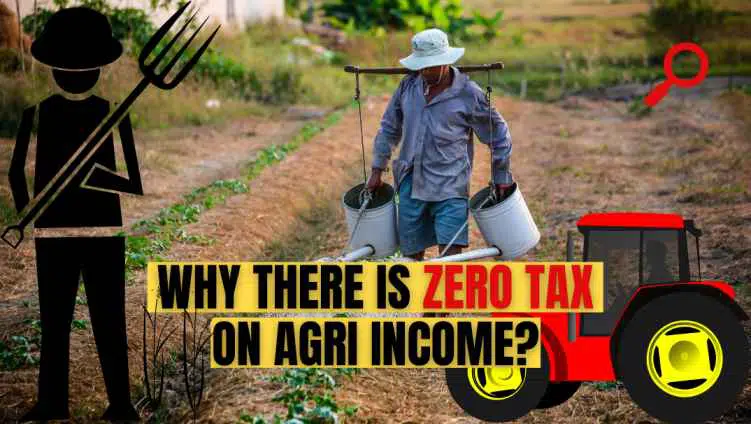
Agricultural income earned by a taxpayer in India is exempt under Section 10(1) of the Income Tax Act, 1961. You can have an unlimited amount of agricultural income without paying even a single rupee towards income tax.
The CAG has found that agricultural income of nearly Rs 500 crore was allowed as an exemption in 2017-18.
BUT WHY?
In 1886, when India introduced income tax under colonial rule, income tax on agriculture was kept out of its ambit because of existing land levies and the right to collect any form of agricultural income tax was vested with the main colonial administration.
In 1935, the right to land revenue, and potential agricultural income tax, was transferred to the provinces, today’s states.
Since then, each state has developed its agricultural income-tax policy, with wide interstate disparities.
For Example,
- Uttar Pradesh introduced an agricultural income tax in 1948 and repealed it in 1957.
- Assam introduced an agricultural income tax in 1939. But it lies the tax only on tea-cultivation income.
Why is the govt unable to devise a standard tax policy for agriculture even after 75 years of independence?
Is the government concerned for the farmer?
Most of the time, politicians are the real beneficiaries of this unlimited tax exemption. Agriculture income has been used as a tool to convert black money into white money since the beginning.
Most of the politicians misuse the agriculture income route for conversion of their black money into white money. And that’s why Mr Sharad Pawar and Mr P. Chidambaram have crores of farming income, and they have been considered as the richest farmers of the nation, obviously not on papers.
For You: How Personal Finance will change in 2022?
Moreover, Agro-companies growing crops are allowed the same tax relief as individuals in states levying no agriculture income tax, although some states do indeed tax some kinds of farming.
Large farmers and agro-corporations with tax-free agricultural income have a huge influence over the government, and if the government ever plans to tax them, these big corporations will lobby against it.
How much revenue does India lose each year because of Zero tax on Agricultural Income?
In the assessment year 2014-15, out of more than 4,00,000 taxpayers claiming an exemption for agriculture income, the biggest was seed giant Kaveri Seeds – it claimed Rs 186.63 crore exemption and made a profit of Rs 215.36 crore before tax.
The multinational company, Monsanto India, claimed Rs 94.40 crore as an exemption from agriculture income and earned Rs 138.74 crore profit before tax. And only 1% of Indians falls into the country’s tax burden.
Tell us in the comment section that, should agriculture income beyond a certain threshold be taxed?
Follow Seeker Times on social media handles.
Why is the govt unable to devise a standard tax policy for agriculture even after 75 years of independence?
Large farmers and agro-corporations with tax-free agricultural income have a huge influence over the government, and if the government ever plans to tax them, these big corporations will lobby against it.

